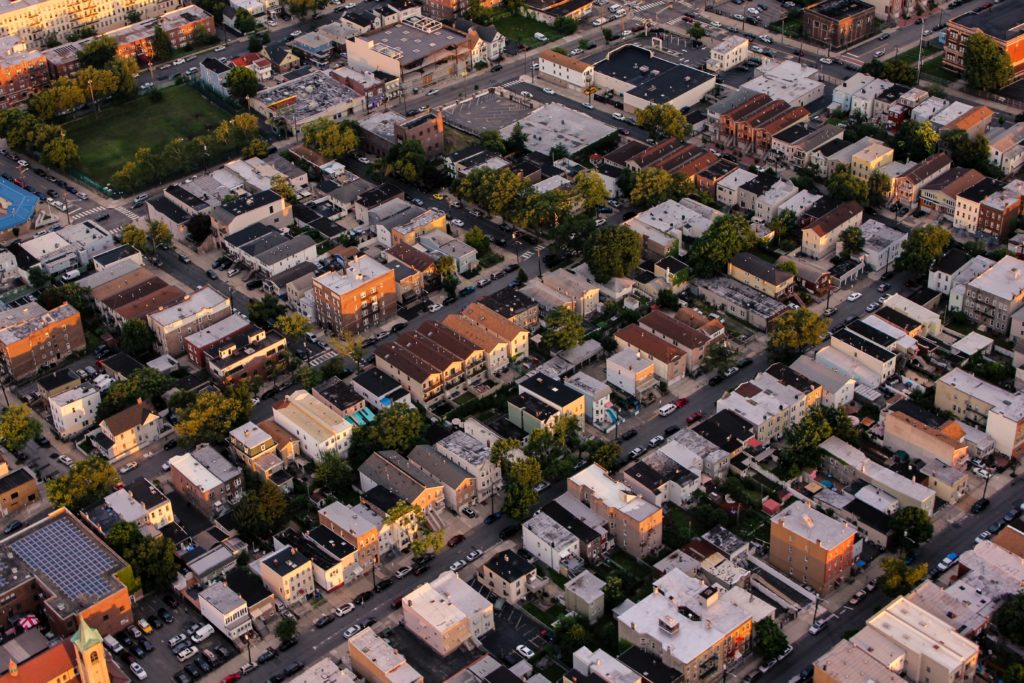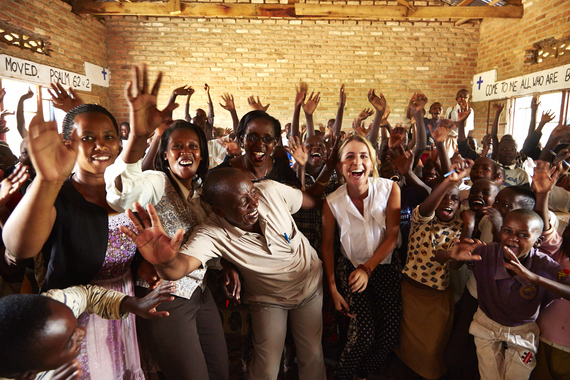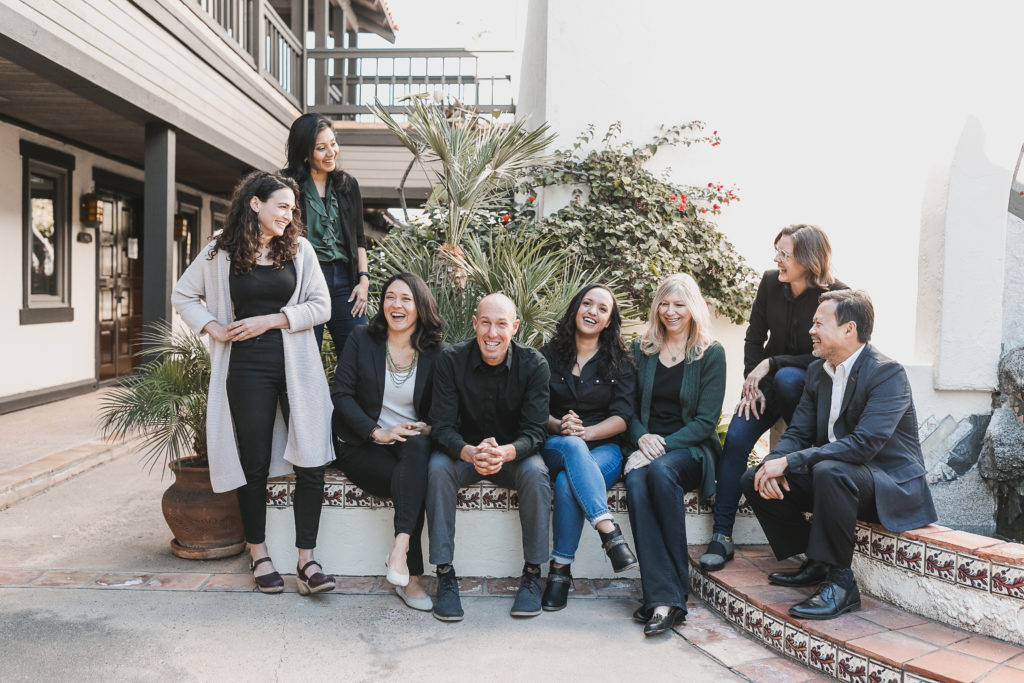When we first launched Mission Driven Finance, we developed the Advance fund with one primary question in mind: how can we make investing in our community a great investment?
The answer we found is to reimagine and reinvent finance to put the community’s needs first.
We discovered incredible businesses and nonprofits committed to their communities but needing a financial stepping stone. These organizations had grown larger than microfinance and SBA programs, but couldn’t quite meet bank financing or venture capital criteria. What’s fascinating is that the capital gaps we found in San Diego are the same gaps in Baton Rouge, Louisiana; Columbus, Ohio; and even Rwanda! And in each of these very different places, what resonates time and again is the need for creative, flexible financing as a tool for change.
This month, I sat down with our Co-founder & CEO David Lynn to talk about our flagship fund Advance, what we’ve learned, and where we go from here.

What inspired the Advance fund?
For years I lived a double life: working during the day in conventional investment management, while volunteering evenings with nonprofits and philanthropy. Those separate lives started converging with the rise of impact investing. I saw increasing options for investing with your personal values in public markets—lots of companies not located in our region—but not many solutions at the community level.
The idea for Advance came from speaking with people who wanted to invest in their communities and the issues that they cared about but didn’t know how. At the same time, we were meeting businesses and nonprofits that had exciting projects making the community stronger, but couldn’t get access to capital. We started noticing the same kinds of gaps in the capital needed by nonprofits, small businesses, and social enterprises, which really inspired the company as a whole.
In particular, as we spoke with banks, we learned that many nonprofits and for-profits were too big for SBA and microloans (which nonprofits don’t typically qualify for in general), while also being too small or underqualified for conventional bank financing, and too small or poor fit for venture capital. That resulted in this gap for organizations of around $100,000 to $500,000 where we saw this real need for capital. So we structured Advance in a way that would allow us to lend to businesses those stuck in that gap.
How does the Advance fund empower communities?
Simply put, communities need good businesses and good businesses need access to capital. After all, we know that small business ownership is an even bigger driver of shifting wealth and intergenerational poverty than homeownership. Unfortunately, a lot of the groups we work with are outside of the conventional financial system—for instance, refugees, immigrants, and faith-based organizations.
When not everyone can participate in the economy, inequality grows and has increased costs to society. Our mission in Advance is to help people overcome obstacles keeping them from full participation. Our portfolio companies prepare people for success through access to health, education, and housing; provide quality jobs, hire from their communities, and support employee development; and allow more people to participate in a positive, growing economy with better systems and infrastructure.
Another central tenet of Advance is that employers are change agents. When local businesses thrive, communities thrive because they can provide quality jobs, services, and goods that reflect the needs of the community. Our Advance fund not only has the potential to improve communities by making locally-focused businesses stronger financially, but we’re also able to help them further develop their impact through our hands-on technical assistance, making them stronger change agents in their own community.
“If we find a business with the potential to create impact within their community, we can find the right capital product to fit their needs.”
Do you see any themes across the Advance portfolio?
With all of our Advance borrowers, serving the community is tightly woven into the actual, fundamental business model—they’re really embedded within their community, not just selling a product or service to their community. Oftentimes, our borrowers are not the obvious top-line social entrepreneurs but community integration is critical to the success of their business. It’s easy to see the community focus in our nonprofit borrowers, but community integration is absolutely present in our for-profit businesses as well.
We have Moniker, which is founded on building a sense of place and community here in San Diego. LuckyBolt is more than just a healthy food provider—their underlying purpose is to improve the food distribution system by working with local farms. And CareCar is a tech company whose business only exists from a broad distributed community basis, both from the jobs they provide and the end users they serve.
Can you give an example of creative and flexible investments creating a path for impact that otherwise wouldn’t be possible?
All of our Advance deals required a bit of flexibility and creativity, but our investment in All Across Africa, a fellow Certified B Corporation based here in National City, required particular creativity. All Across Africa had been operating for a few years building a sustainable and ethical supply chain for homegoods from Africa. They had gotten some key retailers to commit to large orders and needed working capital to scale operations and invest in inventory.
We structured and led a $600,000 bridge debt round with our $350,000 commitment. We needed a debt structure for our fund, and our co-investors wanted the option to participate in All Across Africa’s growth with equity if all kept working well. So we built a convertible note term sheet that met the investors’ different requests and All Across Africa’s immediate capital needs, and also helped position All Across Africa for success in their next equity raise.
This financing allowed All Across Africa to purchase the inventory they needed to meet demand, as well as grow their local and international teams. They’ve since made some incredible impacts with their artisans.

Have you noticed any changes in the capital gaps facing small businesses and nonprofits since starting Advance?
Not at all. If anything, the existence of this gap has been reinforced.
We’ve recently begun exploring the small business and nonprofit environment in other communities, and the gap is the same no matter where you go. Whether we look at urban centers like New York and Los Angeles, smaller cities like Baton Rouge and Columbus, or developing countries in Africa and South America, it’s the same persistent gap.
Regardless of the size of the community, regardless of the cost of housing, regardless of income levels and the overall sophistication and breadth of the local economy, the gap is the same.
The truth is that this financial gap is driven more by the financial system rather than the state of individual communities. And because it comes from the constraints of the financial system, it requires some creative thinking beyond business-as-usual to bridge the gap.
Why aren’t creative and flexible financing options more prevalent?
We fundamentally believe risk has been mispriced in the financial industry. We can look at microfinance to see how these perceptions of risk are wrong. Just look at Kiva’s work in Africa. It was assumed that the types of loans they make couldn’t be financially viable and that these groups could never repay loans, but they have a historical repayment rate of 97%.
As a smaller organization that is able to build deep relationships community by community, we have the opportunity to develop real trust. By building the right team with the right people and the right cultural sensitivities, we’re able to put forth the effort required to build trusting relationships. We believe that if there is strong social capital in addition to the financial capital we invest, that we can further reduce risk. Ultimately, one of the biggest hurdles for us as an organization is to develop a track record to prove that the conventional perceptions of risk in the financial system are wrong.

How has the work with Advance positioned Mission Driven Finance to develop other funds?
The main thing we’ve learned is that we can find good, quality small businesses if we have an approach based on trust, creativity, and flexibility. Our work with Advance has helped us understand that we can work with small businesses to create an investment vehicle to fit their needs, which is the opposite process of most other capital providers—they have a product and they look for businesses that fit into it. If we find a business with the potential to create impact within their community, we can find the right capital product to fit their needs.
Looking back, is there anything that surprised you?
One surprise has been the demand we’ve found nationally and internationally for what we’re doing. Particularly in big cities such as South Bronx or Oakland where there are plenty of financial players already, people are still excited about what we’re doing and it’s surprising that there aren’t many other organizations reexamining the rule book to do things differently too.
What’s next for Advance?
We’re launching Advance Participation Pools which will let people focus their impact investments in one particular community alongside the main, broadly diversified Advance fund. We’re actively working to replicate Advance into other communities around the country. And we’re launching a fellowship program, which will help us reach our goal to expand Advance and related strategies to deploy $20M into communities around the country by the end of 2020.
How can people get involved?
We work with local and national investors to help them create the impact they want. This includes both accredited investors and charitable investment vehicles like foundations and donor-advised funds. I’m always happy to talk with people about their impact investing goals whether that’s with us or other firms, feel free to reach out.
Also, we’re always looking to connect with good businesses and nonprofits. If you know a small business who is the type of business you want to exist in your community but is having trouble getting the capital they need, send them our way.


